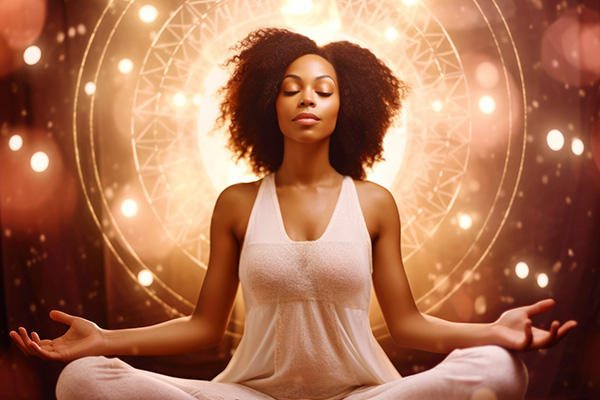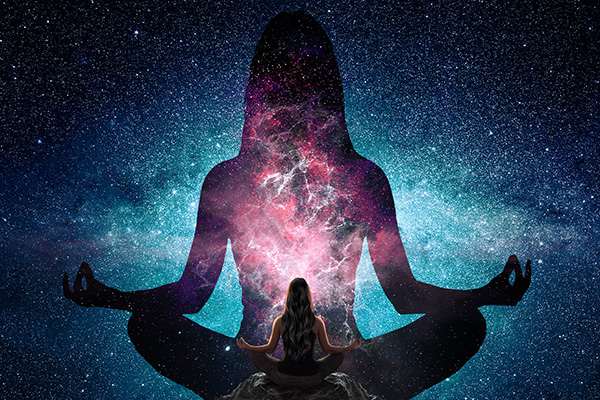inner being
Keep Shining Bright In A Darkening World
 There’s an old children’s song that says, “This little light of mine, I’m gonna let it shine.” Many of us sang it when we were young, never realizing how profound those simple words really are.
There’s an old children’s song that says, “This little light of mine, I’m gonna let it shine.” Many of us sang it when we were young, never realizing how profound those simple words really are.
As we grow up, we begin to understand that the “light” inside us isn’t just a sweet metaphor. It’s our spirit, our energy, our vibration, our soul essence. It’s who we are at the core.
And in a world that often feels heavy with noise, comparison, and negativity, protecting that inner light and letting it shine anyway, becomes one of the most courageous things we can do.
Each of us carries a unique vibration. Some people move through life weighed down by fear, anger, jealousy, or pain: energies that keep them operating on lower frequencies. Others radiate higher vibrations: love, joy, compassion, and creativity.
You can feel the difference when folks like that enter a room. They don’t need to say a word. Their presence alone speaks volumes. Their light softens the atmosphere and uplifts everyone around them.
But here’s a hard truth that many bright souls learn the hard way: light attracts attention, and not all of it is good and kind.
Those who shine brightly are also unwelcome mirrors to some. Their energy reflects back to others what still needs healing. And for some, that reflection can be very uncomfortable. Continue reading
Reclaim Your Power With Higher Consciousness
 To fully embrace the divine love, guidance and support that surrounds you, your heart and mind must open and expand with increasing inner confidence and soul alignment.
To fully embrace the divine love, guidance and support that surrounds you, your heart and mind must open and expand with increasing inner confidence and soul alignment.
This natural progression follows your initial spiritual awakening and allows your higher self to unfold. As you align more deeply with the universal flow, you gain access to higher states of consciousness and greater spiritual clarity.
As you embark on this transformative spiritual path, you may feel an acceleration of energy in and around you. This sensation is not random; it is a direct reflection of the profound shifts that are taking place on a soul level.
The energy of your environment also begins to shift in response, creating a dynamic interplay between your evolving consciousness and the world around you.
Throughout this process, your ancestors, spirit guides, and angels walk beside you, whether you consciously recognize their presence or not.
One of the fundamental truths about the spiritual realms is that energy moves much faster at higher frequencies. The higher dimensions operate at a refined vibrational level that is different from the density of our everyday physical reality.
As you attune to these higher frequencies, you will begin to notice an inner transformation — one that affects your thoughts, emotions, and overall perception of life.
Learning To Trust Your Inner Truth
 Have you ever noticed that whenever you’re really enjoying what you’re doing, it’s as if there’s an amazing energy flow or undercurrent carrying you along?
Have you ever noticed that whenever you’re really enjoying what you’re doing, it’s as if there’s an amazing energy flow or undercurrent carrying you along?
In these magical moments it feels as if the universe itself is moving with you, effortlessly aligning circumstances, people, and opportunities in your favor.
Don’t you wish you could live like this all the time? Imagine a life where every decision you make feels right, where your inner compass is so attuned to your truth that you rarely second-guess yourself.
Unfortunately, we too often worry about what others might think of us, or we choose the practical path – the road most traveled. We fall into the trap of following the opinions of others instead of tuning in and listening to our own inner guidance.
The fear of rejection or failure too often looms large, keeping us tethered to a path that feel safe but uninspiring. We convince ourselves that following our soul’s calling is a luxury rather than a necessity.
Following your inner truth is not selfish. Following the flow of what is true for you also doesn’t mean you’re shirking your responsibilities. It simply means that you are choosing, moment by moment, what feels right for your soul.
Society bombards us daily with standards and our families with expectations of what’s right and acceptable, yet how often do we stop and do a self-check-in? How often do we ask ourselves, “Is this really what I want?” instead of “Is this what I’m supposed to want?”
The Freedom To Live Your Truth
 Honesty is one of those things we all know is important, but let’s face it — it’s not always the easiest option. Telling the truth often does not win you friends, make your family happy, or help you climb the corporate ladder.
Honesty is one of those things we all know is important, but let’s face it — it’s not always the easiest option. Telling the truth often does not win you friends, make your family happy, or help you climb the corporate ladder.
But when you’re on a spiritual journey or facing a karmic reckoning — the truth is everything! It’s not just about being a better person; it’s about living in alignment with your higher self.
Being honest brings a sense of lightness, like a weight lifted from your shoulders. It frees you from the heavy burden of keeping up appearances and the stress of worrying about what others think.
On the other hand, dishonesty — whether it’s a little white lie or a big deception — creates not only tension, guilt, and physical discomfort; it’s a karmic tumor that poisons your soul, fueling a cycle of chaos and imbalance in your life.
Lies and deceit attract confusion, mistrust, and disharmony, disrupts your energy field and throws your whole being out of balance.
This is why it is said that the truth will set you free. You’ve probably heard the saying? It’s been said so many times that it may sound like a cliché, but there is deep wisdom in it. The truth allows us to live without fear, without constantly looking over our shoulder. It brings clarity and peace.
But let’s face it — truth can be scary. We often avoid it because we don’t want to hurt someone’s feelings, rock the boat, or face rejection.
Realigning With Your Higher Self
 In my readings, I often feel that people’s energy is fragmented — like an incomplete jigsaw puzzle with missing pieces. This fragmentation reflects a general disconnection from the core essence of their being: the higher self.
In my readings, I often feel that people’s energy is fragmented — like an incomplete jigsaw puzzle with missing pieces. This fragmentation reflects a general disconnection from the core essence of their being: the higher self.
It’s no surprise that modern life pulls us in countless directions, leaving us feeling stretched, overwhelmed, and out of balance. Between the demands of work, family, and personal goals, the balance of work, rest, play, sleep, and spirit seems to have slipped through our fingers.
Compounding this imbalance is our growing impatience and intolerance. We bristle at delays, resist restrictions, and struggle when life deviates from our carefully laid plans.
Yet frustration and impatience only hinder the natural unfolding of our highest good. The person we are waiting to meet or the opportunity we are longing for may not be ready to enter our lives — or, more likely, we may not be ready to welcome it.
When we feel lost, stuck, confused, or fearful, these are signs of misalignment or disconnection from our higher self. This distortion cuts us off from clear inner guidance and spiritual awareness, leaving us adrift in a sea of doubt, fear, and negativity.
Realigning with our higher essence restores the natural flow of energy, inner wisdom, and divine guidance. We rediscover our wise inner genius, the calm confidence that resides within, and the power to live in harmony with our true essence and fulfill our soul plan.

